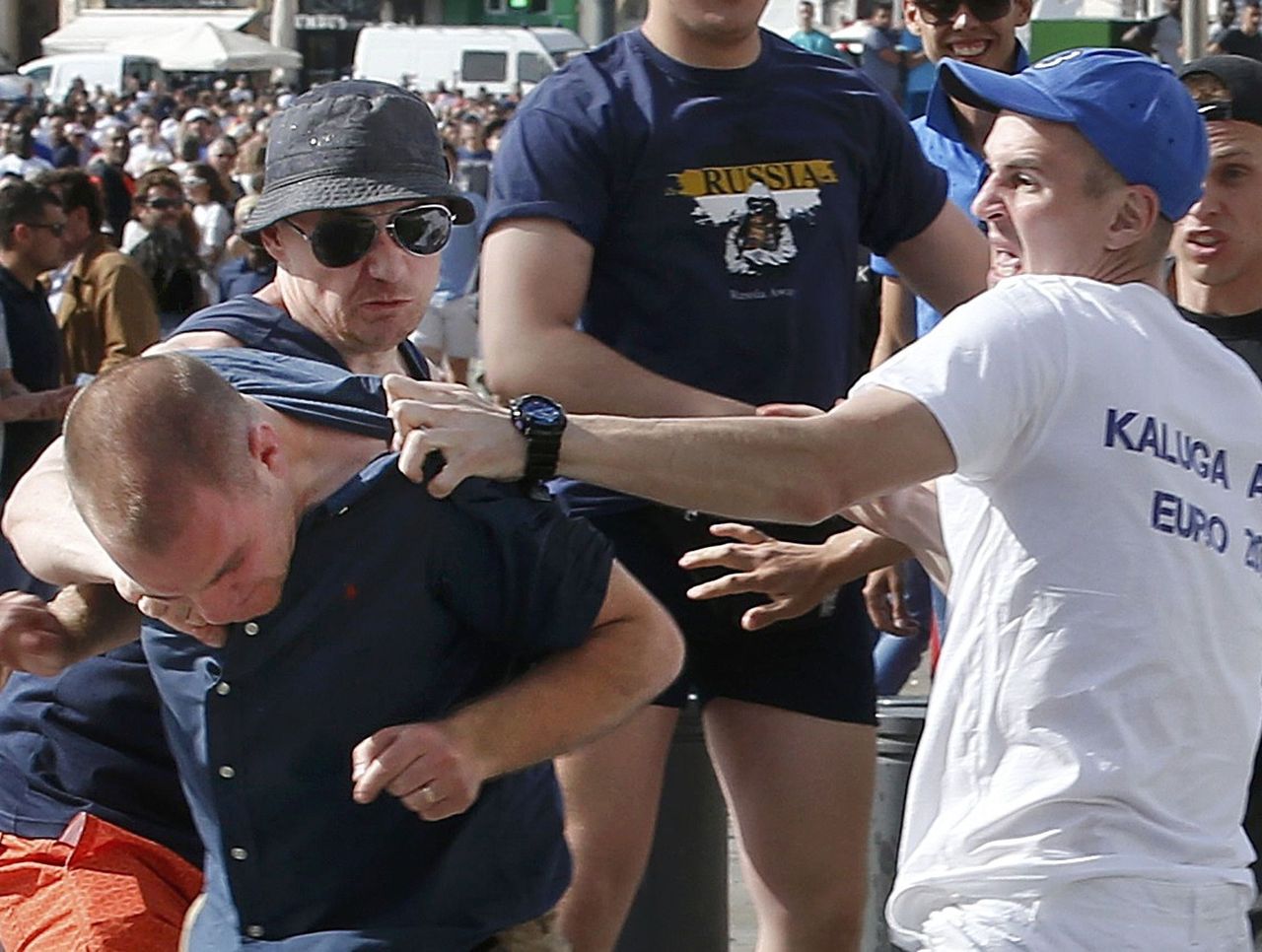Paltry authoritative measures at fault in Marseille violence
A sensational beginning to Euro 2016 has been marred by violent scenes in Marseille, where locals, "fans" believed to be from England and Russia, and police have clashed in the coastal city.
The tournament's security was quite rightly focused on terrorism.
November's devastating attacks on various areas throughout Paris has the country still in a state of emergency, and its seemingly random acts of violence that make planning and preparing for them absolutely vital.
Unfortunately, this appears to have left a small minority of mindless hooligans and gangs to run riot in Marseille - but the warnings of this arising were there.
Related - Watch: Violence continues in Marseille as brawls between fans turn vicious
An eight-page document released last month by the U.S. State Department warned of the threats that could occur over the tournament, first noting that bars and restaurants - rather than stadiums - were most at risk from terrorism.
It was thorough, and also noted the violence that had occurred between Russians and English before at football events, and the rioting incited by the latter in Marseille at the 1998 World Cup. The report recognised June 11's clash between the two countries as a high-risk affair.
As with each tournament, passports have been revoked from those deemed too dangerous to travel to France's showpiece, but measures simply weren't enough.
"Some countries temporarily revoke passports for fans with a history of hooliganism abroad, as England did for some 3,000 fans during the 2006 and 2010 World Cups, and nearly 1,500 during the 2014 World Cup," the report read. "The number for Euro 2016 is reportedly only in the low hundreds at this time."

BBC News' Nick Eardley witnessed bottles being thrown "every couple of minutes" in a "pretty terrifying" third day of violence in Marseille on Saturday. Sirens were heard blaring across the city, a water cannon deployed, and thugs desperately tried to kick away tear gas canisters as police rushed to restore order.
All this unfortunately infiltrating news of an enthralling 2-1 win for Wales over Slovakia, 400 miles away in Bordeaux. It has significantly dampened a fine competition, and much of the fighting could have been preventable if the revoking of passports was as widespread as in previous World Cups and European Championships.
Preventative measures of people entering the country should have perhaps been more stringent, too. The United Kingdom's potential separation from Europe is voted on June 23, inevitably increasing tensions with neighbours. France has struggled with unrest related to the movement of Syrians into the country and a long-running right-wing government. Russia's status under Vladimir Putin is well known.
As Henry Winter of The Times notes, the implications of this violence could result in expulsion from the tournament:
Euro 2000, June 18, Uefa warns FA any more hooliganism in Brussels/Charleroi and England will be thrown out. Knocked out anyway. 1/2
— Henry Winter (@henrywinter) June 11, 2016
Euro 2016 tournament regulation 6.01: "The associations are responsible for the behaviour of their supporters". FA under huge pressure. 2/2
— Henry Winter (@henrywinter) June 11, 2016
If UEFA takes similar behaviour from England fans at Euro 2000 in Belgium and the Netherlands into consideration, the Three Lions campaign isn't certain to continue.
A sorry situation in France that, with sufficient communication between the host nation, Russia, and England, could have been significantly reduced.
